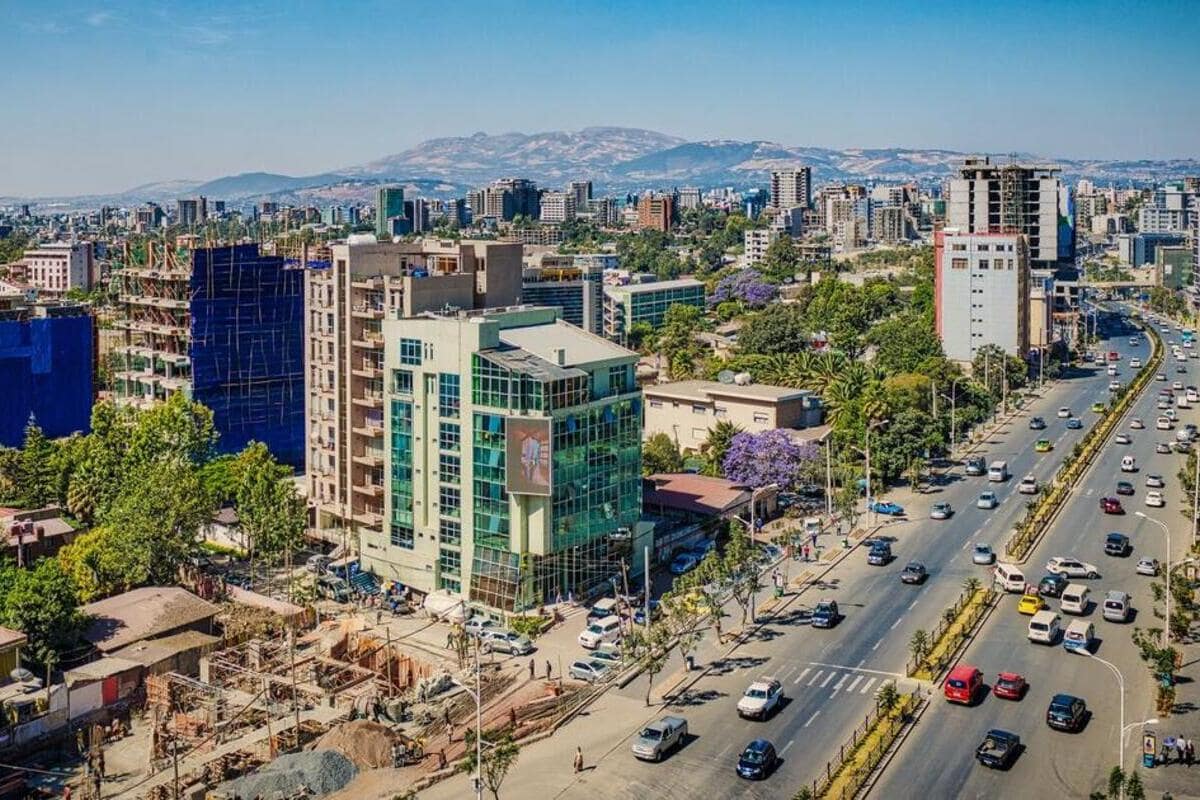Addis Ababa is the capital and largest city of Ethiopia, where centuries-old history, cultural diversity, and modern development intertwine. Located high in the mountains, it has a unique climate that sets it apart from most other African capitals. It is home to the country’s most important political, cultural, and economic centers, as well as international organizations that influence the future of the entire continent. This is one of Africa’s key cities, holding many secrets and stories you might not know. Below are fascinating facts that will help you better understand the uniqueness of Addis Ababa.
- Addis Ababa is situated at an altitude of about 2,400 meters above sea level, making it one of the highest capitals in the world. Thanks to this, the climate is mild and pleasant despite its proximity to the equator. Temperatures rarely exceed 25 degrees Celsius, which is unusual for African cities.
- The city was founded in 1886 by Emperor Menelik II and his wife, Empress Taytu Betul. According to legend, the location for the capital was chosen because of the presence of hot mineral springs that the Empress enjoyed. The name “Addis Ababa” in Amharic means “New Flower.”
- Addis Ababa is the political center of Africa, as it hosts the headquarters of the African Union. This makes the city an important location for international meetings and summits. It is also home to the offices of many international organizations.
- The city is home to a multiethnic population representing various ethnic groups of Ethiopia. Dozens of languages can be heard here, although the main ones are Amharic and English. This cultural diversity makes Addis Ababa a true ethnic mosaic of the country.
- One of the largest markets in Africa, the Mercato, is located in Addis Ababa. It is like a city within a city, where you can find everything from traditional handicrafts to modern electronics. Thousands of shoppers and vendors visit it every day.
- The capital of Ethiopia is known for its museums, with the National Museum of Ethiopia holding a special place. It houses unique archaeological finds, including the famous skeleton of the Australopithecus known as Lucy, considered one of the oldest human ancestors.
- Addis Ababa is home to one of the country’s oldest universities – Addis Ababa University. Founded in 1950, it plays a key role in training national professionals. Students from all regions of Ethiopia and other African countries study here.
- The city has a developed transport infrastructure, including a modern tram system, which was the first of its kind in Sub-Saharan Africa. This system helps reduce road congestion and ease traffic in the city.
- Addis Ababa has many religious sites, among which St. George’s Cathedral stands out. It is famous for its unique architecture and history, as it was here in 1930 that Emperor Haile Selassie I was crowned. The cathedral remains an important spiritual symbol of the country.
- The city is the cultural heart of Ethiopia, hosting regular music festivals, art exhibitions, and theatrical performances. Local music combines traditional instruments with modern styles, creating a distinctive sound.
- Addis Ababa is notable for its abundance of greenery, with many parks and gardens scattered throughout the city. Unity Park is particularly popular, serving as a favorite leisure spot for locals and tourists. Due to its high-altitude location, the city’s flora is very diverse.
- The largest international airport in the country, Bole International Airport, is located in Addis Ababa. It is the main transportation hub of Ethiopia and an important transit point for African and intercontinental flights.
- The city plays a significant economic role, being home to industrial enterprises, banks, and companies from various sectors. Business growth is supported by the city’s stable political importance as a diplomatic hub.
- Addis Ababa lies in a seismically active region, although strong earthquakes are rare. This is due to its location on the edge of the Great Rift Valley, one of the most famous geological formations in the world.
- Local cuisine is famous for its traditional dishes, with injera being the most notable – a large sour flatbread served with various sauces and stews. The food culture here is deeply tied to family and religious traditions.
Addis Ababa is a city that amazes with its blend of history, culture, and modernity. These interesting facts show how important it is not only for Ethiopia but for the entire African continent. The city continues to grow and develop while preserving its identity and uniqueness. Its future will undoubtedly be as rich and vibrant as its past.





